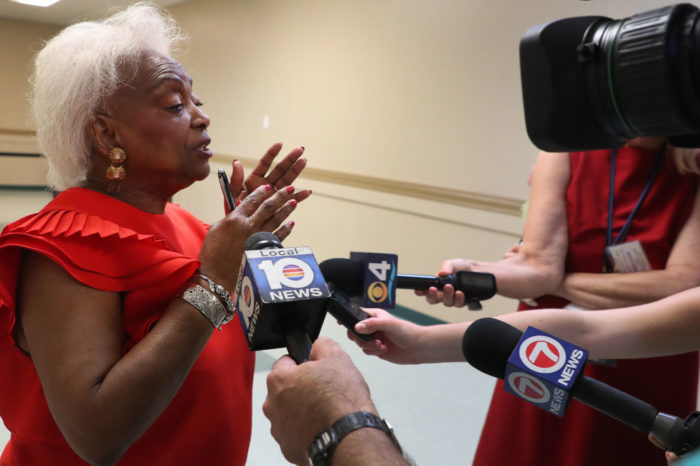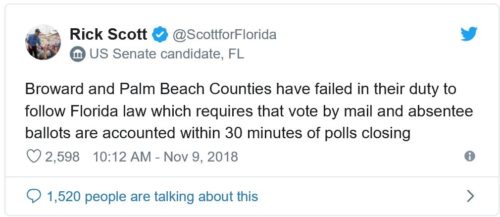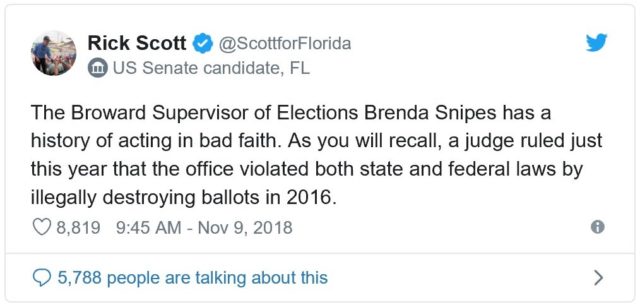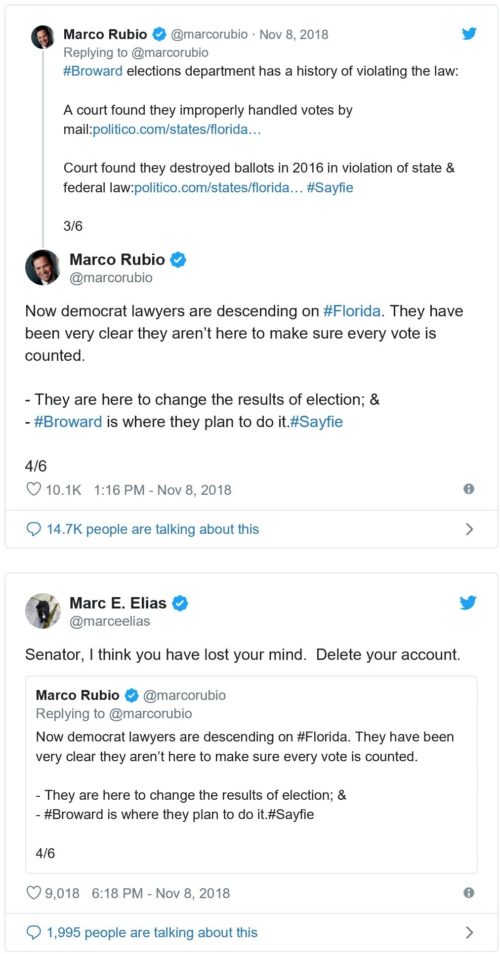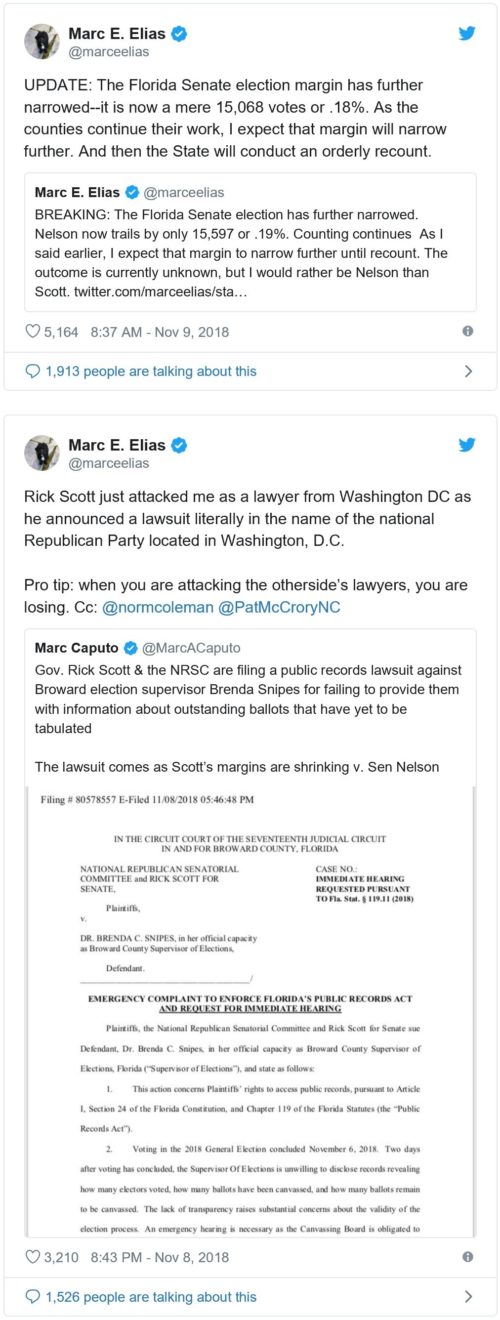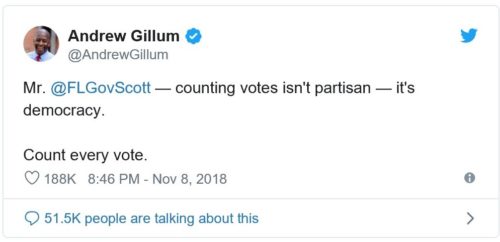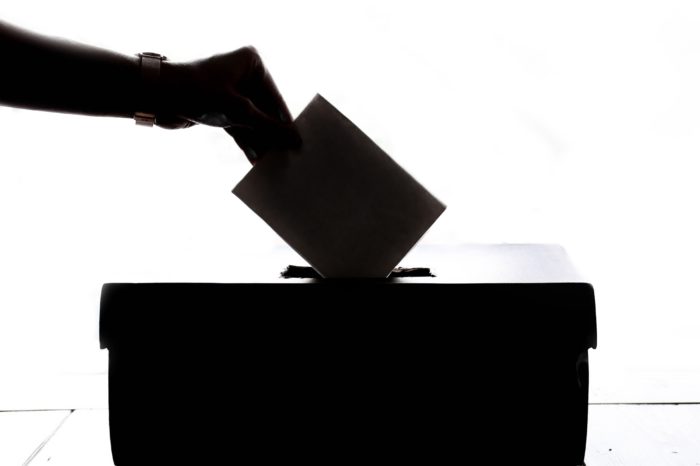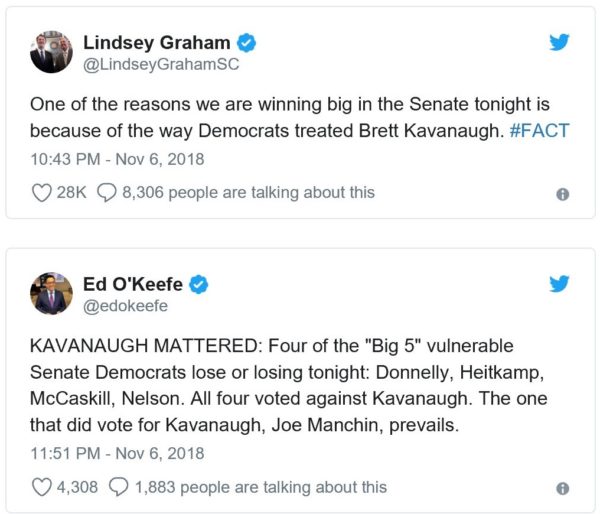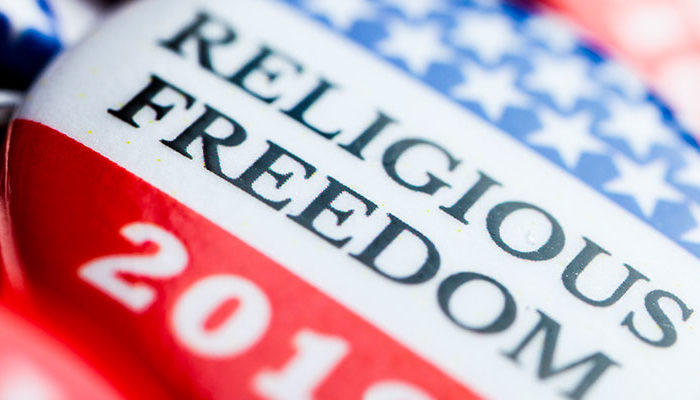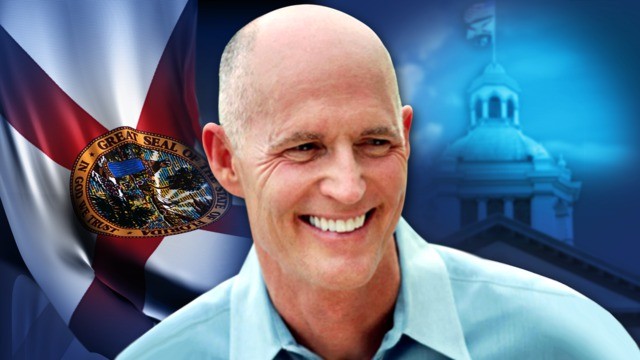On October 30, 2018, President Trump voiced his intent to end birthright citizenship through an executive order. To those on the left, his comment sounded outlandish and devoid of any attachment to reality. To others, the comment was an expression of wishful thinking, or worse yet, a hollow political stunt.
Indeed, the President’s only defense of his claim when pressed was, “Now, they’re saying that I can.”
Well, who is they? And to whom are they saying it?
Immediately, reporters and politicians alike responded with claims of the plan’s unconstitutionality. On the same day that President Trump spoke of the idea, Adam Liptak of the New York Times wrote that President Trump’s claim was at odds with the legal consensus. Liptak reached back to the testimony of then Head Counsel for the Justice Department’s Office of Legal Counsel, Walter Dellinger, before Congress in 1995 who said, “Because the rule of citizenship acquired by birth within the United States is the law of the Constitution, it cannot be changed through legislation, but only by amending the Constitution.” Similarly, Speaker of the House Paul Ryan said in an interview with “Larry Glover Live” on WVLK, “You cannot end birthright citizenship with an executive order.”
But like so many other things in law, innovative approaches and ideas that are in fact allowable become so only because the idea is viewed under the scrutiny of a different prism. This case, I believe, is no exception.
Presidential Powers.
The powers of the President of the United States, and indeed the entirety of the executive branch, are defined in Article II of the Constitution of the United States. The Framers made it perfectly clear in Article II, Section 3, that the President of the United States “. . . shall take Care that the Laws be faithfully executed. . .”
The mandate goes straight to the most elemental check upon the President, and indeed, the whole executive branch. The President cannot create any new laws. All the President has the power to do is make sure that statute passed by Congress, or authorities given to him by the Constitution, are carried out in a manner consistent with the statutes enacted by Congress and with the language contained within the Constitution.
As a matter of fact, the question of whether the President has the authority to write new laws has already been reviewed by the Supreme Court and struck down. In Clinton v. City of New York, U.S. (1998), the Court reviewed the constitutionality of the Line Item Veto Act of 1996 giving the President the power to veto certain items in the budget if he so desired. So strict was the interpretation of the prohibition upon the President to in any way alter a law presented to him or her by Congress, that even the mere alteration through a line-item veto was interpreted as giving the President the authority to amend the statute he was altering. The power of amendment, the Court said, rested only with Congress, a signature feature of the Separation of Powers doctrine that colored the Constitution. Any intrusion through amendment or line item veto by the executive was expressly prohibited.
So clearly, the President, and all departments of the executive branch are bound to the charter of faithfully executing the laws of the United States and may not alter them.
But interpreting the laws of the United States is an altogether different matter. Both the executive branch and the President are continuously tasked with interpreting the laws passed by Congress. Essentially, the President lacks any authority to do anything that either the Congress or the Constitution does not allow him to do. But if Congress grants the executive the authority to carry out a particular task, then it is fundamental to the successful execution of that task that the President and the departments answerable to him interpret Congress’s mandate.
In certain areas, Congress has made perfectly clear what it is that they wish for the President or agencies to do. Elsewhere, Congress has not been specific, either because it purposely wished to give the authority of interpretation or policy design to the executive, or because it lacked the political will to pass the law inclusive of specific definitions or directions.
The Fourteenth Amendment’s Language Regarding Birthright Citizenship.
In 1866, the country was reeling from the devastating effects of the Civil War. The South lay in ruins. The Democrat establishment inculcated in the southern states, although militarily defeated, was doing everything it could to maintain its old class and economic system. Although slavery had been outlawed and former slaves emancipated, southern Democrats were busy building roadblocks to the success of former slaves and African Americans in general.
Yes, slavery was no longer an option, but southern Democrats still had the Dred Scott decision at their disposal. In the most offensive Supreme Court ruling in American history, the Court in Dred Scott held that black Americans were not citizens of the United States, and that even if a state had afforded the person citizenship, such an act did not concurrently grant American, or federal citizenship. In other words, merely because an individual of African descent was a citizen of a certain state, he or she still would not be considered an American citizen. The post-war Southern States, under Democrat hands, aimed to capitalize on that still governing opinion.
The Reconstructionist Congress immediately took to rectify that situation and repeal the Dred Scott opinion. It would do this through a Constitutional Amendment. Congress had already outlawed slavery by passing and ratifying the Thirteenth Amendment to the Constitution. Now, it was hard at work at correcting this latest affront to former slaves by fashioning an amendment that would accomplish five things:
- clarify that citizenship of the United States supersedes state citizenship;
- define who is a citizen of the United States;
- guarantee equal protection under the law to all citizens;
- guarantee due process rights to all citizens;
- and guarantee the same privileges and immunities to all citizens.
The result of their efforts was the Fourteenth Amendment to the Constitution, a rather voluminous addition addressing all the aforementioned issues. Regarding who is recognized as a citizen of the United States, the Fourteenth Amendment states, “All persons born or naturalized in the United States, and subject to the jurisdiction thereof, are citizens of the United States and of the state wherein they reside.”
Notice that the Fourteenth Amendment does not state that all persons born in the United States are citizens, but rather, those who are born in the United States and who are “subject to the jurisdiction thereof.”
So, what does “subject to the jurisdiction thereof” mean?
For that, we have information from debates and Supreme Court cases. In the debates leading to the passage of the language of the Fourteenth Amendment, some senators agreed that the phrase essentially meant “subject to full and complete jurisdiction of the United States.” Consequently, the phrase was included to make sure that certain persons born in the United States would not be considered citizens. These included American Indians, foreign invaders, and foreign dignitaries, such that, for example, if a foreign dignitary were to find herself pregnant in the United States and gave birth to a baby on American soil, that child was not considered to be a citizen of the United States.
The question of the citizenship of a baby who was born on American soil to someone who found herself in the United States illegally was never contemplated. Clearly, upon interpreting the language and the intent of the addition of the clause, it is clear that such an individual would not be subject to the full and complete jurisdiction of the United States and would likely not have been intended to be a citizen of the United States according to the Framers of the Fourteenth Amendment.
For the contrary interpretation we would have to go to the few cases decided by the Supreme Court where the Court dealt with the language of the Fourteenth Amendment of the Constitution, but whose circumstances were not identical to the questions posited by President Trump.
United States v. Wong Kim Ark, U.S. (1898) was a case dealing with the citizenship of a child born in San Francisco to Chinese, non-citizen immigrants. In that case, the Court ruled that the child was indeed a citizen of the United States. The stickler here is that the baby’s parents, although non-citizens, had come to the United States and were residing within the United States, legally.
Contrarily, the Court held in Elk v. Wilkins, U.S. (1884) that the children of American Indians were not automatically considered citizens of the United States because, even though they were born on U.S. soil, the parents, by virtue of belonging to an American Indian tribe had not subjected themselves to the complete jurisdiction of the United States.
There are cases dealing with government benefits where courts, even the Supreme Court, have decided that the children of illegal immigrants born on American soil are eligible for benefits because they are citizens of the United States, but in such cases the courts began their analyses under the assumption that these children were citizens. More to the point, the Court has never decided whether birthright citizenship is absolute and immutable under the Constitution, or whether it is subject to regulatory oversight. In other words, the question of whether Congress or the executive can interpret the Fourteenth Amendment in such a manner that clarifies the meaning of the phrase “subject to the jurisdiction thereof” and thereby limit certain classes of individuals from being citizens has never been entertained by the Court.
Congress Opens The Door To The President’s Executive Order.
Whether the President has the authority to make a policy interpretation directly from the language in the Constitution of the United States is an interesting discussion, but our analysis does not have to reach that question because in point of fact, Congress passed a statute codifying the citizenship clause within the Fourteenth Amendment.
The Immigration and Nationality Act passed by Congress in 1952 actually codifies the citizenship and naturalization provision of the Fourteenth Amendment in 8 U.S.C. §1401(a). It reads, “The following shall be nationals and citizens of the United States at birth: (a) a person born in the United States and subject to the jurisdiction thereof; . . . ” However, in it Congress did not define the meaning of the phrase “subject to the jurisdiction thereof.”
Consequently, so long as Congress fails to define the meaning of the clause, it falls upon the executive or the President to do so. Therein lies the invitation by Congress for the President to interpret eligibility for birthright citizenship born to a person illegally in the United States. Admittedly, the judiciary may also interpret that phrase, but it can only do so in a case or controversy with standing where the actual question of the meaning of the phrase is at play. Additionally, even if the judiciary interprets the meaning of the statutory language, a definition put forth by the executive or Congress will supersede the judiciary’s definition.
However, if the judiciary were to interpret the meaning of the phrase as it is used in the Constitution then only a constitutional amendment could overturn the decision, which represents yet another example of why our nation is well served by the passage of a legislative override provision to a Supreme Court decision.
The Merits Of Ending Birthright Citizenship.
Having established that the President has the authority to end birthright citizenship by simply defining the phrase “subject to the jurisdiction thereof,” should he?
I begin with the question of whether it should be done at all. There are a number of arguments in favor of ending birthright citizenship. Perhaps the most compelling of these is that birthright citizenship serves as an incentive for illegal immigration. Unquestionably, many women would risk life or limb to have their children born in the United States just so that the baby would be a citizen of the United States. The practice has many deleterious effects, not the least of which is increasing the number of American citizens with dual citizenship. Additionally, once the child is a citizen, it becomes much more difficult for authorities to deport the parents. And finally, of course, the child born under these circumstances becomes the first link in the chain of migration that will naturally include his or her parents.
There are also real costs to illegal immigration. Jon Feere, a policy analyst for the Center for Immigration Studies pointed out during his congressional hearing in 2015 that about 375,000 children are born to illegal immigrants in the United States each year, or one in 10 births. Additionally, 71% of illegal alien households with children make use of welfare benefits. The aggregate costs of these programs run into the billions of dollars each year. And bear in mind that in the developed world, only the United States and Canada honor birthright citizenships.
Who has the authority under the Constitution to end birthright citizenship? Clearly, from our analysis, both Congress and the President have the authority to end birthright citizenship without amending the Constitution.
So who should do it?
Congress, of course! Congress is where such a robust discussion should rightfully take place. But if Congress does not or cannot, then the responsibility falls upon the President.
If President Trump were to end birthright citizenship through an executive order, there is a strong likelihood that the Supreme Court will overrule him regardless of how the executive order is fashioned. But if it does so based on a claim that the President lacks the authority to define a vague and previously undefined statutory clause, the Court will be glaringly guilty of two things. First, it would be guilty of randomly and capriciously denying the President the authority to do something that is fundamental to his duties of faithfully executing the laws of the United States. And second, the Supreme Court will be making a decision not on the inherent authorities granted to each branch of government as it should, but merely on its disdain towards the policy enacted, clearly a policy consideration outside of its own purview.
The President is correct in asserting his authority to interpret a nebulous congressional statute, even if the result is the end of birthright citizenship. At the very least, doing so will force Congress to have the debate it should have had decades ago.
EDITORS NOTE: This column originally appeared in The Federalist Pages. The featured photo is by Anthony Garand on Unsplash.



